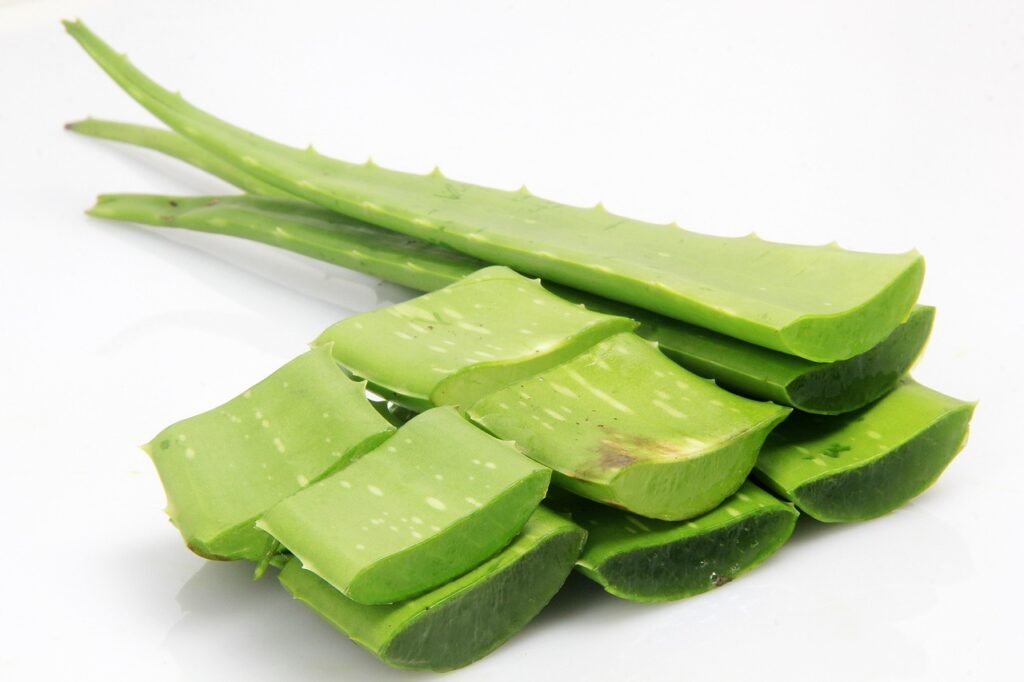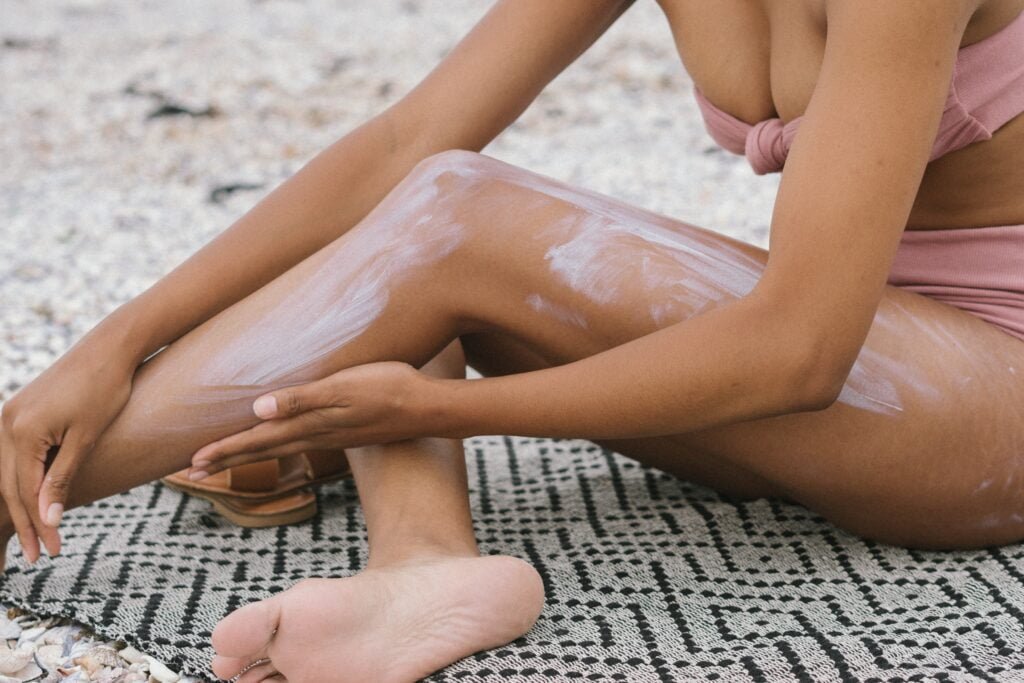How to Heal Sunburn and what are Natural Remedies to treat Sunburn?
Ah, those glorious days under the sun, basking in its warm embrace… until that dreadful moment when you realize you’ve acquired a fiery sunburn.
Fear not! We’re here to unveil the ultimate solutions for soothing your sun-kissed skin.
This article will be your guide to effective remedies and techniques that bring relief and promote healing. Prepare to bid farewell to discomfort and embrace the cooling embrace of these powerful solutions.
Before we dive into the remedies, let’s shed light on the nature of sunburn. When your skin is exposed to excessive ultraviolet (UV) radiation from the sun or tanning beds, sunburn occurs. Its severity can range from mild redness and tenderness to blistering and peeling.
Sunburn primarily results from the damaging effects of UVB rays, which harm your skin cells’ DNA and trigger an inflammatory response. Now that we’ve identified the culprit, let’s explore the best ways to treat and calm your sun-kissed skin.
Get ready to delve into a world of soothing remedies, discover natural solutions, and unlock expert tips that will help you bid farewell to sunburn and embrace the radiant, rejuvenated skin you deserve.
Some of the links in this post are affiliate links. This means if you click on the link and purchase the item, I will receive an affiliate commision at no extra cost to you. All opinions remain my own. Read more on our Privacy Policy page
What You Need to Know About Vitamin C Sunscreen: Your Shield Against UV Rays and Skin Aging
What is sunburn?
How to Heal Sunburn: Natural Remedies
Let’s uncover the fascinating process of how sunburn actually occurs. When your skin is exposed to excessive ultraviolet (UV) radiation, those powerful rays penetrate the outer layer, damaging the skin cells. Specifically, it’s the UVB rays that are responsible for triggering sunburn. They cause DNA damage within the cells, leading to an inflammatory response. This inflammation is what gives rise to the telltale symptoms and discomfort associated with sunburn.
Sunburn can manifest in a variety of symptoms, with the intensity varying depending on the severity. Common signs include skin redness, tenderness, and a sensation of heat. As the burn progresses, pain may intensify, accompanied by swelling and even blistering. Mild sunburns typically resolve within a few days, while more severe cases may take longer to heal and can be accompanied by systemic symptoms like fever and chills.
First-Degree and Second-Degree Sunburns
Sunburns can be categorized into two main types: first-degree and second-degree. First-degree sunburns affect the outer layer of the skin, known as the epidermis. These burns usually present with redness, pain, and mild peeling. On the other hand, second-degree sunburns penetrate deeper into the skin, reaching the dermis. They are characterized by more severe symptoms, including blistering, intense pain, and a higher risk of scarring. Understanding these distinctions helps determine appropriate treatment strategies for sunburn.

Immediate Actions for Sunburn Relief
How to Heal Sunburn: Natural Remedies
Cooling and Soothing the Skin
Providing immediate relief to sunburned skin is crucial for easing discomfort and promoting healing. Start by gently cooling the affected area using cold compresses or opting for refreshing cool water baths. This helps to reduce inflammation, soothe the burning sensation, and bring comfort to your tender skin. Remember to refrain from applying ice directly to the skin, as it may cause further harm and increase discomfort.
Hydration for Skin Recovery
Sunburn can deplete your skin’s moisture levels, emphasizing the need to replenish hydration. Hydrate your body from within by drinking ample amounts of water. Regular water intake restores the body’s fluid balance, supports the healing process, and enhances overall skin health. Make a conscious effort to sip water throughout the day and incorporate hydrating foods into your diet. Opt for water-rich fruits like watermelon, refreshing cucumbers, and citrus fruits, which not only hydrate but also offer additional nutritional benefits.
Alleviating Pain and Inflammation
Effective management of pain and inflammation is vital for your comfort and recovery from sunburn. Over-the-counter non-steroidal anti-inflammatory drugs (NSAIDs), such as ibuprofen or aspirin, can help provide relief. These medications work to reduce pain, alleviate inflammation, and expedite the healing process. However, it is important to adhere to the recommended dosage instructions provided on the packaging and consult a healthcare professional if you have underlying health conditions or are taking other medications to ensure their safe and appropriate use.
Protecting Your Skin from Further Sun Damage
After experiencing sunburn, it is essential to shield your skin from additional harm. Avoiding further sun exposure is critical for allowing your skin to heal. Seek shade, particularly during peak sunlight hours when the sun’s rays are most intense. When venturing outdoors, wear protective clothing that covers the sunburned areas, such as loose-fitting long sleeves, wide-brimmed hats, and sunglasses. Additionally, consider utilizing umbrellas or seeking shaded areas to minimize direct sun exposure and facilitate undisturbed skin recovery.

Soothing Sunburned Skin
Aloe Vera: Nature’s Soothing Wonder
Tap into the incredible benefits of pure aloe vera gel to bring soothing relief to your sunburned skin. This natural remedy possesses cooling properties that alleviate pain, reduce inflammation, and promote skin healing. Gently apply a generous amount of pure aloe vera gel directly to the affected areas, creating a protective shield that moisturizes the skin and restores its natural balance.

Coconut Oil: Nourishment and Hydration
Unveil the secrets of coconut oil, a potent moisturizer for sunburned skin. Embrace its rich emollient properties that lock in moisture, preventing dryness and peeling. Gently massage virgin or extra virgin coconut oil onto the affected areas, allowing its nourishing effects to take hold. This natural remedy soothes the skin, reduces inflammation, and supports the healing process. Exercise caution if you have oily or acne-prone skin.
>>> 100% Cold Pressed Virgin Coconut Oil

Oatmeal Baths: A Calming Oasis
Immerse yourself in the tranquil solace of oatmeal baths, offering respite from itching and inflammation caused by sunburn. Introduce finely ground colloidal oatmeal into a soothing lukewarm bath, and luxuriate in its anti-inflammatory properties that pacify irritated skin and provide temporary relief from itching. Upon completion, gently pat your skin dry, sealing in hydration with a nourishing moisturizer.
Witch Hazel: Astringent and Cooling Elixir
Discover the enchantment of witch hazel, an astringent elixir that provides solace to sunburned skin. Apply a small amount of witch hazel to a cotton pad, softly caressing it onto the affected areas. Experience the soothing powers of witch hazel as it reduces inflammation, alleviates discomfort, and delivers a refreshing sensation to sunburned skin. Opt for alcohol-free witch hazel products for optimal soothing benefits.
Shea Butter: Restorative Nurturance
Indulge your sunburned skin with the sumptuous embrace of shea butter, a nourishing ally in the healing journey. Revel in its moisturizing and reparative properties, as it tenderly replenishes dry, sun-damaged skin. Gently apply a thin layer of unrefined shea butter to the affected areas, permitting its natural blend of fatty acids and vitamins to nourish the skin, reduce inflammation, and foster the recovery process.

Green Tea: Revitalizing Elixir
Harness the revitalizing energy of green tea, an elixir that brings relief and rejuvenation to sunburned skin. Brew a cup of green tea, allowing it to cool, before applying it to the affected areas using a soft cloth or cotton pads. Surrender to the calming and invigorating effects of green tea as its antioxidants and anti-inflammatory properties work harmoniously to diminish redness, soothe irritation, and promote skin rejuvenation.
Remember, while these natural remedies can provide relief, listen to your body and discontinue use if you experience any adverse reactions. If symptoms persist or worsen, consult a healthcare professional for further guidance.

Natural Remedies for Sunburn Relief
How to Heal Sunburn: Natural Remedies
Vinegar Compress: Soothing Relief from Nature
Experience the soothing effects of diluted vinegar as a natural remedy for sunburn relief. Create a vinegar compress by mixing vinegar with water and gently applying it to the affected areas. Vinegar’s acetic acid content helps alleviate pain, reduce inflammation, and restore the skin’s pH balance. Embrace this natural solution to enjoy a cooling sensation and temporary relief from the discomfort of sunburn.
Green Tea: Anti-Inflammatory Elixir
Tap into the power of green tea as a natural remedy to alleviate sunburn discomfort. Brew a cup of green tea, allowing it to cool, and delicately apply it to the affected areas using a clean cloth or cotton pads. Green tea boasts potent antioxidants and anti-inflammatory properties, which can effectively reduce redness, calm inflammation, and support the healing process. Indulge in the rejuvenating and soothing effects of this ancient elixir.
Cucumber Slices: Cooling Hydration for Sunburned Skin
Delight in the refreshing and hydrating properties of cucumber slices, a natural remedy to soothe sunburned skin. Place chilled cucumber slices directly onto the affected areas and let their cooling effects work wonders. Cucumbers provide instant relief by reducing inflammation, imparting a soothing sensation, and delivering a surge of hydration to parched skin. Embrace this natural solution to revitalize and rejuvenate your sunburned skin.
Essential Oils: Fragrant Support for Sunburn Relief
Discover the potential benefits of lavender or chamomile essential oils in providing relief for sunburned skin. Dilute a few drops of your chosen essential oil with a carrier oil like coconut or almond oil, and gently apply it to the affected areas. Lavender and chamomile oils possess calming and anti-inflammatory properties that help reduce pain, soothe the skin, and support the healing process. Enjoy the fragrant support of these natural remedies on your sunburned skin.
Essential Oil Diffusers with Top 10 Oils Gift Set

Revitalizing Radiance: Unlocking the Anti-Aging Secrets of Essential Oils
Healing and Recovery – How to Heal Sunburn: Natural Remedies
How to Minimize Skin Irritation
To facilitate healing, prioritize minimizing further skin irritation. Opt for loose-fitting clothing made of breathable fabrics to prevent friction on the sunburned areas. Steer clear of harsh chemicals, fragrances, and other irritants that can worsen the condition. Choose gentle, hypoallergenic skincare products and laundry detergents to promote a faster recovery without aggravating the skin.
How to Care for Sunburned Lips and Eyes
Sensitive areas like the lips and eyes require special attention when treating sunburn. Apply a moisturizing lip balm with sun protection factor (SPF) to protect and hydrate sunburned lips. Soothe sunburned eyes by placing cool, damp tea bags or cucumber slices over closed eyelids. Remember to wear UV-protective sunglasses to shield your eyes from further damage and aid healing in these delicate areas.
Hydration for Optimal Recovery
Maintaining proper hydration is crucial for healing and recovery. Ensure you drink an ample amount of water throughout the day to replenish fluids lost due to sunburn. Consider incorporating hydrating beverages or electrolyte-rich sports drinks to restore electrolyte balance. Staying adequately hydrated supports skin health, enhances the healing process, and helps restore the body’s natural equilibrium.
Nourishing the Skin with Antioxidants and Vitamins
Support the skin’s healing process by incorporating antioxidant-rich and vitamin-packed foods into your diet. Load up on fruits and vegetables, such as berries, leafy greens, citrus fruits, and carrots, to provide essential nutrients for skin nourishment. These dietary choices offer antioxidants that combat free radicals, aiding in skin repair, rejuvenation, and the healing of sun-damaged skin.
Seeking Medical Attention for Sunburn
Recognizing the signs and symptoms of severe sunburn that may require immediate medical attention is crucial. Look out for intense pain, extensive blistering, widespread redness, high fever, dizziness, or dehydration. If you experience any of these severe symptoms, it’s important to promptly seek medical attention for a comprehensive evaluation and appropriate treatment from a healthcare professional.

Preventing Future Sunburns
Understanding the crucial role of sun protection is key to preventing future sunburns. Make it a habit to shield yourself from harmful UV rays by wearing sunscreen with a broad-spectrum SPF of 30 or higher. Additionally, don protective clothing and accessories like wide-brimmed hats and sunglasses. By emphasizing these sun-safe practices, you can significantly reduce the risk of sunburn and long-term skin damage.
Effective Sunscreen Application
Properly applying sunscreen is essential for maximizing its effectiveness. Prior to sun exposure, generously apply sunscreen to all exposed areas of the skin, ensuring comprehensive coverage. Pay particular attention to often overlooked areas such as the ears, neck, and back of the hands. Reapply sunscreen every two hours or more frequently if swimming or sweating. Adopting these guidelines ensures optimal sun protection and minimizes the chances of sunburn.
Sun Bum Original SPF 50 Sunscreen Lotion

Strategies for Sun Avoidance
Implementing sun avoidance techniques plays a vital role in preventing sunburns. Seek shade whenever possible, particularly during the peak sun hours between 10 a.m. and 4 p.m. Enhance your sun protection by utilizing umbrellas, wide-brimmed hats, and lightweight, long-sleeved clothing. Remember that surfaces like water, sand, or snow can reflect and intensify UV exposure. By incorporating these strategies, you can effectively reduce the risk of sunburn and safeguard your skin.

Sunburn and Aging: Unveiling the Impact
How to Heal Sunburn: Natural Remedies
The consequences of sunburn extend beyond immediate discomfort, significantly affecting the aging process of your skin. Unprotected sun exposure and sunburn can accelerate premature aging, resulting in the emergence of wrinkles, fine lines, age spots, and an uneven complexion. Understanding the intricate relationship between sunburn and aging empowers you to take proactive steps in safeguarding your skin and preserving its youthful vitality.
- Collagen Depletion: Harmful ultraviolet (UV) radiation penetrates the skin, impairing collagen fibers responsible for maintaining firmness and elasticity. Sunburn exacerbates collagen breakdown, leading to reduced skin elasticity, sagging, and the formation of wrinkles.
- Photoaging: Inadequate protection against prolonged or repeated sun exposure can trigger photoaging, the premature aging of the skin caused by UV radiation. This condition manifests as dryness, rough texture, discoloration, and the appearance of wrinkles, imparting an aged and weathered look to the skin.
- Hyperpigmentation: Sunburn stimulates excessive melanin production, resulting in hyperpigmentation such as age spots or dark patches, predominantly in sun-exposed areas like the face, hands, and shoulders.
- DNA Damage: UV radiation induces DNA damage within skin cells, leading to genetic mutations and an elevated risk of developing skin cancer. Repeated sunburns over time heighten this risk, emphasizing the crucial importance of sun protection and early detection.
Protecting Your Skin from Sunburn and Premature Aging:
To prevent sunburn and mitigate the aging effects of the sun, it is essential to establish a comprehensive sun protection routine:
- Shield with Sunscreen: Apply a broad-spectrum sunscreen with an SPF of 30 or higher generously to all exposed skin areas. Reapply every two hours, or more frequently if perspiring or engaging in water activities.
- Seek the Shade: Limit sun exposure during peak hours, typically between 10 a.m. and 4 p.m., when UV rays are most intense. Take refuge in shady areas, utilize umbrellas, or don sun-protective clothing.
- Embrace Protective Attire: Safeguard your skin by wearing sun-protective clothing, such as wide-brimmed hats, long-sleeved shirts, and UV-blocking sunglasses to shield both your skin and eyes from the sun’s harmful rays.
- Harness Natural Remedies: Explore the soothing and antioxidant properties of natural remedies like aloe vera, coconut oil, or green tea, which can aid in reducing inflammation and promoting skin health.
- Hydrate and Nourish: Maintain skin hydration by drinking ample water and adopting a balanced diet rich in antioxidants, vitamins, and minerals. This nourishment supports overall skin health and combats the aging effects induced by sun damage.

Conclusion
How to Heal Sunburn: Natural Remedies
In this article, we’ve covered everything you need to know about sunburn, from its causes to the various degrees of severity. We’ve explored immediate actions for relief and highlighted natural remedies like aloe vera, coconut oil, oatmeal baths, and witch hazel. Remember, knowledge is power when it comes to sunburn care.
Prompt treatment is the key to easing discomfort and accelerating healing for sunburn. By recognizing severe symptoms and seeking timely medical attention, you can prevent complications and ensure proper care. Don’t ignore your body’s signals – consult a healthcare professional if your sunburn worsens or persists.
Take charge of your sunburn care with the power of natural remedies. Explore the soothing benefits of aloe vera, coconut oil, and oatmeal baths to provide relief for your sunburned skin. But don’t stop there! Embrace proactive measures like sun protection and effective sunscreen application to prevent future sunburns.
In conclusion, armed with the knowledge from this article, you have the tools to tackle sunburn head-on. Remember to take prompt action, seek medical help when needed, and explore the natural remedies and proactive measures available to protect your skin. Your skin deserves the best care, so make it a priority and enjoy the sun responsibly!
How to Protect Your Skin from UV Damage and Premature Aging: A Comprehensive Guide
Get Here SLIMMING CRYSTAL WATER BOTTLE
FAQs – How to Heal Sunburn: Natural Remedies
Can sunburn only occur on sunny days?
Sunburn can happen even on cloudy or overcast days. UV rays can penetrate through clouds, making it crucial to protect your skin with sunscreen and appropriate clothing regardless of the weather conditions.
How long does it take for sunburn to heal?
The healing time for sunburn varies based on its severity. Mild sunburns typically resolve within a few days to a week, while more severe cases may require more time, possibly up to two weeks or longer. Providing proper care and monitoring the healing process are important during this time.
Is sunscreen alone enough to prevent sunburn?
While sunscreen is a vital tool for sun protection, it should not be relied upon as the sole measure. It is recommended to combine sunscreen with other preventive actions, such as seeking shade, wearing protective clothing, using hats and sunglasses, and avoiding peak sun hours, for comprehensive protection against sunburn.
Should I continue using sunscreen after getting a sunburn?
Yes, it is important to continue using sunscreen even after getting a sunburn. Sunscreen provides ongoing protection against further damage and helps prevent additional UV exposure that can worsen the burn or lead to sunburn on unaffected areas.
Can I get sunburned through a window?
Yes, UV rays can penetrate glass, particularly if it is untreated to block UV radiation. Whether you spend time near windows or in a car, it is advisable to apply sunscreen or consider using UV-protective window films or shades to reduce UV exposure and minimize the risk of sunburn.







